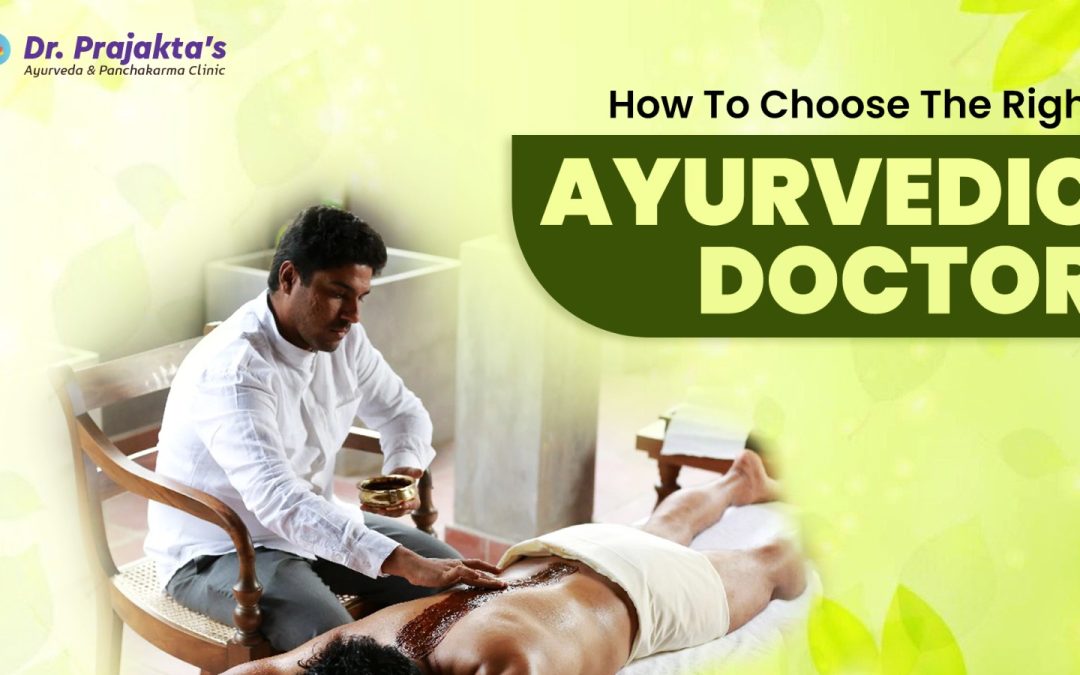It can be daunting to choose the right Ayurvedic doctor, especially when you want natural healing, personalized support, and lasting relief. As the popularity of Ayurveda continues to grow, more people are becoming aware of their options in learning about this ancient science and utilizing sustainable health solutions. How do you know if you are in safe hands?
In this blog we will provide you step by step, everything you should be looking for in training from a good Ayurvedic doctor, so you can calmly select an Ayurvedic doctor and know you are making an informed and confident choice.
Understand the Qualifications of an Ayurvedic Doctor:
The number one most important thing you can do is confirm the doctor’s qualifications.
In general, a qualified Ayurvedic practitioner will certainly have a BAMS (Bachelor of Ayurvedic Medicine and Surgery) degrees as well as at least a 5.5-year program on classical NHS settings as well as evidence-based medical sciences.
Beyond the BAMS, they may have further qualification such as MD (Ayurveda) paper or other certificates, but may also have some other specialties in Ayurveda, such as Panchakarma for infertility, skin care or wellness coaching.
Tip: Don’t be afraid to ask about their education; a true professional should be happy to explain it.
Check Their Specialization and Experience
Ayurveda is an extensive science and most doctors narrow their expertise into specific areas such as:
- Joint pain and arthritis
- Digestive disorders
- Treatment of skin and hair
- Women’s health
- Stress, anxiety, or lifestyle conditions
- Panchakarma treatment and detox programs
- If you have a specific condition, look for someone who has worked with cases like yours.
Experience is valuable. A doctor who has worked with patients for years may have a better understanding of more subtle symptoms and be able to utilize their experience more effectively in diagnosing and treating you.
Evaluate Their Diagnostic Approach
One of Ayurveda’s greatest strengths is its holistic way of diagnosing individuals. A good Ayurvedic physician will not only treat you for your symptoms, but rather assist you in finding the underlying cause of your illness.”
Here is a baseline of what you want in a reliable consultation.
✅ Nadi Pariksha (Pulse diagnosis) – A way to better understand doshic imbalances
✅ Tongue and eye observations – Provides insight into internal health
✅ Comprehensive Lifestyle and Diet Analysis – Looks at sleep, stress, eating patterns, and daily habits
However, most important is the doctor is a great listener, takes time to discuss your constitution (Prakriti) and seeks to build a relationship based on trust. When the consultation is rushed and the doctor does not have enough time to give you a diagnosis, or is unclear, then they are a no-go.
Ask About Their Treatment Methods
Ayurveda is not a cookie-cutter approach. Ask what the treatment looks like for your body.
Look for responses that include:
- Herbal or classical medicines
- Panchakarma therapies (detox, rejuvenation)
- Suggested diet and lifestyle changes
- Yoga or meditation recommendations
If the doctor recommends pills or only external treatments for you without incorporating aspects of your day-to-day life, it probably isn’t a whole-body plan.
A reputable doctor of Ayurveda recognizes the importance of balance over quick fixes.
Read Online Reviews and Testimonials
Digital platforms have opened up a world of possibilities for knowing what others say.
- Take Google reviews, Practitioner directories or even Ayurveda clinic websites.
- Patient experiences
- Before-and-after stories
- Feedback on experiences with consultations
- Success with health conditions
Authentic reviews describe patterns. Do people mention how well they felt understood, or that their treatment helped them beyond the appointment, or that things were neat and orderly about the clinic?
Verbal references can also help ask friends or family if they have received Ayurvedic treatment, and how successful their outcomes were.
Check Transparency in Pricing and Treatment Plan
Health can be individual, and so can your limits imposed by your budget.
- A good Ayurvedic practitioner or clinic will:
- Be clear about any consultation costs.
- Advance you through how long the treatments will take and how much they will cost.
- Not try to force you to accept unnecessary therapies or products.
Look out for vague or overly commercial practices. True Ayurveda is ethically anchored, and your ideal doctor will take your well-being above their sales.
Where to Find Good Ayurvedic Doctors in Pune
Pune has a culture of wellness, and several licensed Ayurvedic clinics and physicians. You can seek the services of:
- Reputable Ayurveda hospitals and teaching institutions like Tilak Ayurved Mahavidyalaya
- Clinics that deliver authentic Panchakarma therapies.
- Verified doctors on platforms like Practo or Lybrate
- Wellness centers that practice Ayurveda, yoga, and nutrition
- When possible, try to organize an initial consultation and learn about the philosophy before committing to more involved treatment.
Conclusion
Selecting the correct Ayurvedic doctor extends beyond qualifications; it is a matter of comfort, trust, and true healing potential. The right doctor listens, teaches you, assesses you holistically, and cares for you safely and clearly.
Whatever you’re seeking in Ayurveda, whether relief from chronic complaints, or a program to enhance your health as a whole, the right guidance is a life-changing experience.
Take your time, ask the correct questions, and begin the journey to your unique natural wellness.
About Author

Dr. Prajakta Shah, BAMS, DEMS
Ayurvedic Doctor | 21+ Years of Experience
Dr. Prajakta Shah is a renowned Ayurvedic doctor in Viman Nagar, Pune with over 21 years of experience. She specializes in natural, holistic treatments for chronic health problems, women’s health, digestive disorders, and stress management. As the founder of Dr. Prajakta Ayurveda & Panchkarma Clinic, she integrates classical Ayurveda with modern care to deliver personalized treatment solutions.

